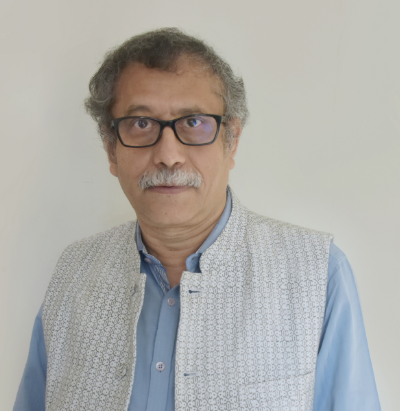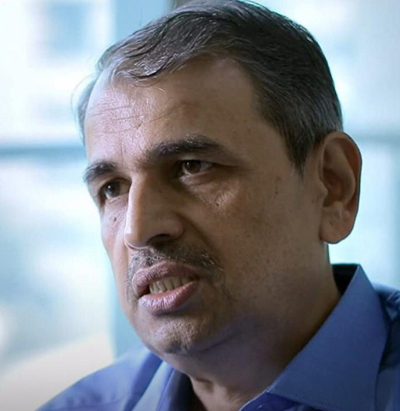Department: Physics | Semester: Monsoon 2021
This course will provide a survey of the evolution of scientific thought, from the point of view of examples that I’ll use to illustrate general principles. Examples I’ll use will include:
(i) the Hyderabad fish cure and the British doctors cohort (illustrating evidence in epidemiology and the importance of randomized control trials),
(ii) the evolution of the atomic theory (how can we reason about things we can’t see?)
(iii) the evolution of the periodic table (why is the whole world made up of a limited set of building blocks?)
(iv) nuclear energy and atomic bombs (experiments that point the way to a deeper understanding of fundamental constituents of nature and the ethical and moral consequences of such knowledge)
(v) evolution (are there “laws” in biology and what determines the diversity we see around us?)
(vi) DNA and genetic engineering (Watson, Crick and Franklin and the Nobel prize, ethical issues around cloning) and
(vii) the greenhouse effect and climate change (how to reason about the world from a scientific viewpoint, dealing with the unknown).
The course will introduce some mathematical concepts along the way that relate to these examples, among them: counting arguments, probability, random walks, functions and simple statistics, so that the role of mathematics in helping us think is illustrated. The content of this course is somewhat dynamic and goes beyond the topics listed above – it will use examples from what is happening currently, including the COVID-19 pandemic, to illustrate the importance and relevance of scientific thinking. It assume no prerequisites, except for a willingness to learn new things and to also view material you may have encountered in school with a new eye.
Department: Chemistry | Semester: Monsoon 2021
The course deals with the effect of length scales on phenomena that we see around us. It will introduce the concepts of length scales and their effects from examples out of our experience and analyze the broad basis at a pedagogical level. Understanding from electronic to atomic and molecular scale to coarse graining in biological systems has enriched the multi-scale effects in science. The large length limit of classical mechanics has been one that forms a well understood part of science. The discovery of quantum mechanics about a hundred years back has been one of the most disruptive ones and is established as one which allows us to understand the small length science. The metaphysics behind quantum mechanics will be explained. The course will also deal with intermediate length scales, going up from smaller length scales progressively upwards to mesoscopic length, which has been of great recent interest that has enriched science, from quantum systems to Nanotechnology to system level biology. It will be taught at a level which will be of interest to those not only interested in science, but also humanities.
Department: Biology | Semester: Monsoon 2021 & Spring 2022
Science gives us the ability to understand how our world works and how we interact with our physical surroundings. It not only incorporates basic ideas and theories about how our universe behaves but it also provides a framework for learning more and tackling new questions and concerns that come our way. Science is a thought process that allows you to integrate with your surroundings, both living and non-living. Ideas are continuously falsified, verified and tested for their correctness making the process inherently a journey towards the truth and reality. This makes scientific ideas and discoveries unbiased and stand test of time. A singularly major achievement of scientific methods is to perceive the world around as which beyond human perception, which is limited by our sensory systems.
Science also provides an unparalleled view of the order and symmetry of the universe and its workings—subatomic particles to the never-ending space. It has also given us the tools to alter and create new living and non-living things. It has potential to have both positive impacts such as coping with natural disasters, curing diseases, and discovering new sources of energy, as well as negative impact in the form of climate change and new diseases.
The course narrates some of the key historical, philosophical, ethical, theoretical and technical developments in the evolution of the scientific thought and offers a synoptic view of the development of concepts that drive modern science. The course is taught through a series of debates, discussions. Assignments and observations along with classroom lectures.
Department: Biology | Semester: Spring 2022
This course discusses how we evolved the concept of age and time- age of the earth and of the solar system, time in relativity (and arrow of time, entropy), time in biological systems (biological clocks) etc. Through this course we would be like to bring to the students, our current understanding about the scale and age of the Universe, and how this knowledge has evolved; How biological systems including human body maintain temporal patterns; impact of climate change and ecological damage on biological time and the evolution of survival strategies that require understanding of past, present and future.
The course will start with a general introduction and historical perspective to the concept of time in our day-to-day life and in physics and in biology. We shall discuss the history of measurement of time and invention of clocks. Without involving any mathematics, the course will help students derive relationship between speed of light and time, space-time continuum, age of the universe, stars, earth etc. We would then follow concept of time in biology in the context of birth-growth-ageing-death. Seasonal variations in morphological and life-history traits as measurement of time, mechanism of timekeeping – biological clocks, circadian rhythms. The course ends with discussions on human cognition and the concept of time: conceptual understanding of past, present and future.
The course is taught through lectures, discussions, flip-the-classroom mode (students making presentations on various related topics), reading books/watching movies and writing assignments.








